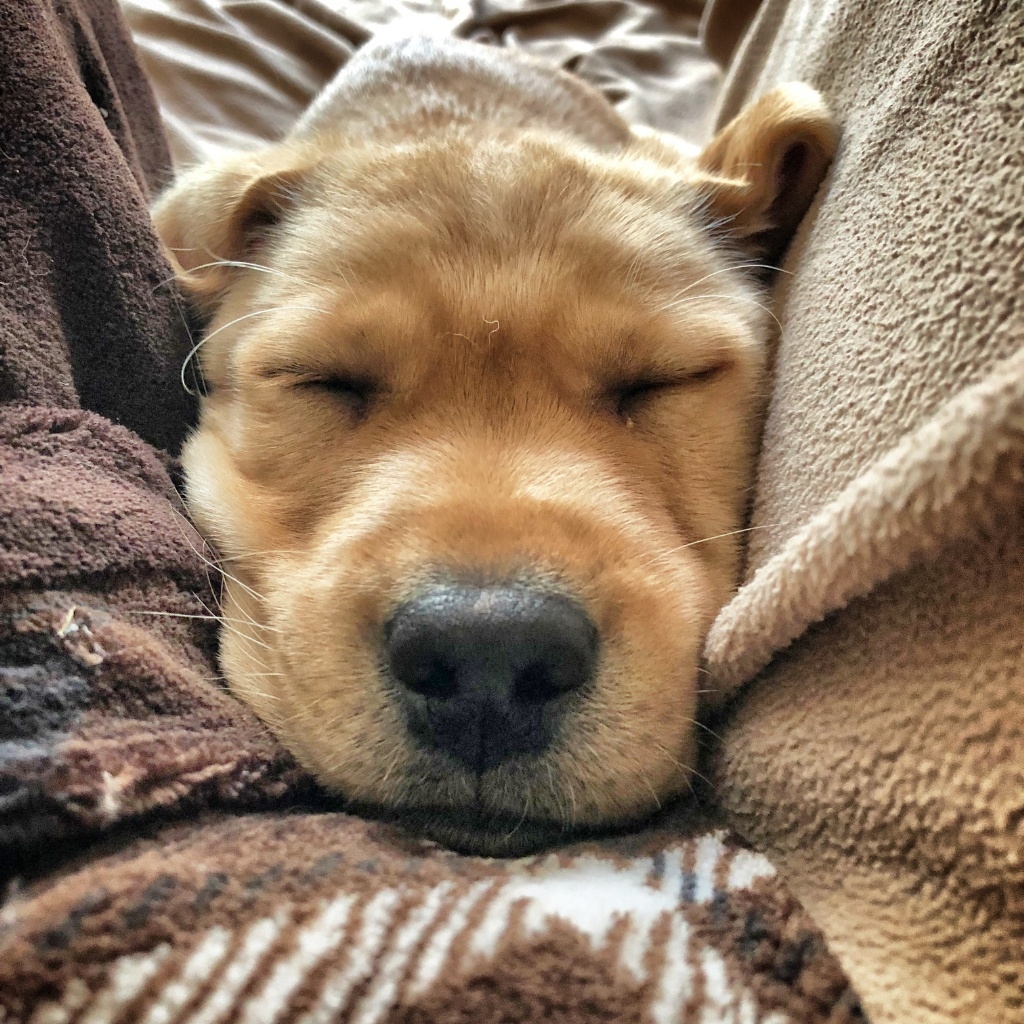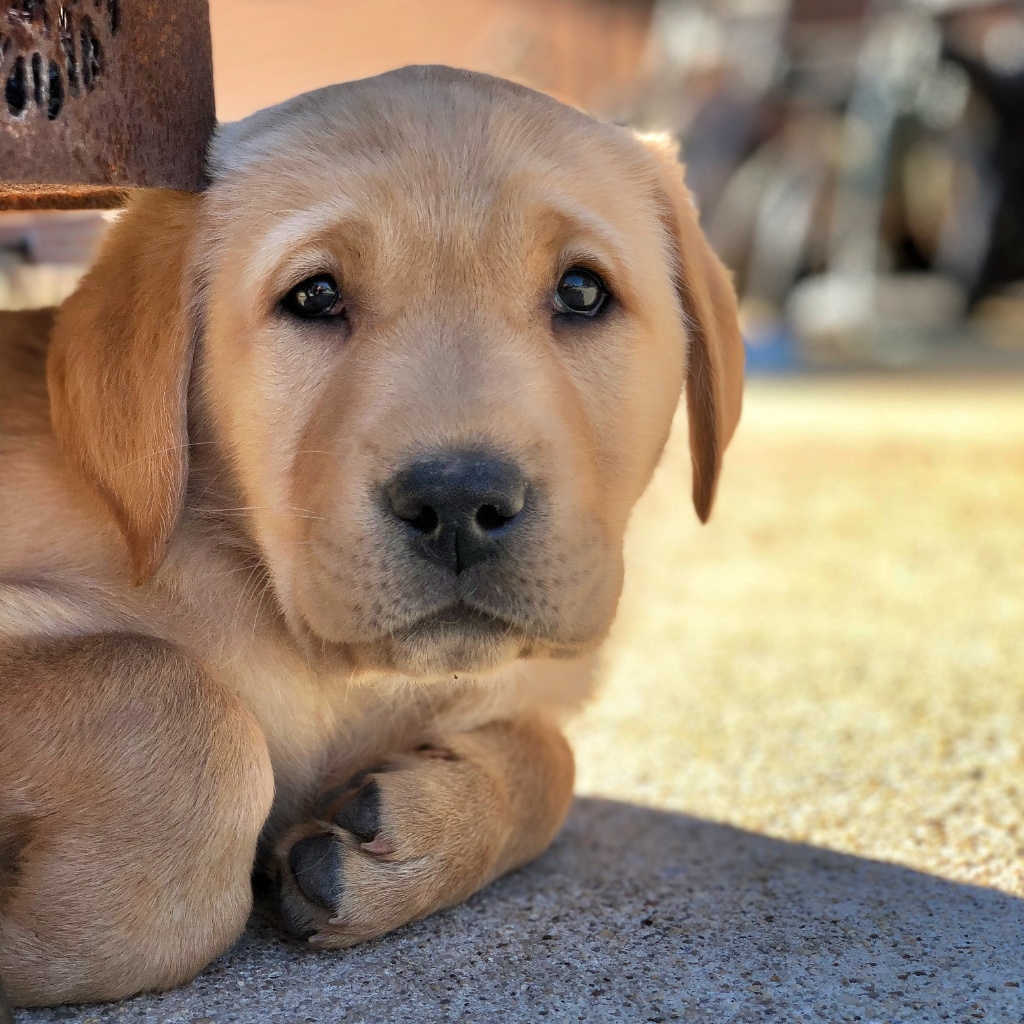Should you get littermates?
I don’t usually get this question. Normally, I hear “Help, we got littermates!” That comes after the littermates are already home and the people are feeling understandably overwhelmed.
Most dog trainers, if asked, would say “No way, don’t do it! Never get littermates.”
Meanwhile, most dog owners say “We got littermates because…”:
- they were the last two left and I couldn’t bear to separate them
- we have two kids, so we got two puppies
- I just couldn’t leave with one after I saw how cute they were
- we eventually want two dogs — if I’m going to raise one puppy, I might as well get them both at the same time
- we want them to keep each other company when we’re gone during the day
- it was an impulse decision, we didn’t really plan on getting two
- I liked one, <insert family member here> liked the other, so we got both
I have discouraged littermates in the past because I know how much work it is to raise, socialize, and train one puppy! Adding a second puppy seemed out-of-this-world bonkers to me.
However. I am right now, at this very minute, raising littermates. Where’s my eye roll emoji?
How did I get here?

I raise puppies for a service dog organization. I love being a puppy raiser. Over the past year, five puppies have come into our house. Three have already come and gone (one to a client who wanted a trained pet dog, the other two are service dogs in their advanced training) and I now have Whit and Dougan. (More of the back story in an upcoming post.)
I’ll be writing more about our progress — the highs and the lows (there are lots of both!).
But for now, here are some things to think about if you are still thinking about getting littermates (or any two puppies under six months old at the same time).
Puppies need to learn how to live independently from one another.
It’s so easy to let the puppies sleep together, eat together, play together, walk together, and learn together. However, that’s a reeeeeallly big problem for the puppies.
Imagine that you had twin children. You might dress them similarly at first, but before long, you would encourage their independence and you’d help each child discover her own preferences, develop her own opinions, and find her own friends. It’s important for human development — the kids will need to go places independently, they will have different interests.
Yet people almost never think about this for puppies. This is where the term “bonded pair” becomes a problem. Go to any dog rescue organization and look at all the “bonded pairs” or “must be adopted together” dogs. This is usually because these two dogs were raised together from puppyhood and never learned how to act without the other dog being there with them.
It’s cute — it’s so very cute — when two puppies nap together. And play. And follow one another.

That cuteness turns into an unhealthy dependence on one another.
If you’ve heard of the term “co-dependent,” you know that it generally refers to an unhealthy relationship dynamic. Co-dependency can mean, in a broad sense, someone who cannot function on their own and whose thinking and behavior is instead organized around another person.
That doesn’t sound so healthy. And we seem to be able to recognize and make an effort to prevent this in humans. But when it comes to puppies, it’s almost as if people want their pups to grow up dependent on the other puppy. That’s unfortunate because it’s not a good idea for the puppies or the family they live with.
As I raise these puppies, they are learning how to:
- sleep in separate crates
- go to their crates in separate rooms
- go to the bathroom on a leash without the other puppy around
- play with me by themselves (instead of only playing with one another or playing together with me)
- focus on people instead of one another
- train in a separate room with me
- rest and relax alone (with and without me, but definitely without the other puppy)
- ride in the car without their brother
- eat without their littermate
- staying at home (crated) while the other puppy goes out for training (with me)
Why is this so important for littermates?
You may never intend that your pups be separated, so what’s the big deal, right?
I feel certain that all those bonded pair dogs on the adoption sites also started out that way — they were going to live their whole lives in that home and with that family.
But life happens. What if:
- one of the dogs gets hurt and needs to spend a week (or more) in an emergency veterinary hospital
- one dog is injured and is on crate rest for 16 weeks
- tragedy befalls the family and the dogs need to be rehomed (significant human injury, sickness, loss of income, natural disaster, etc.)
- one of the dogs gets along well with the new baby, but the other one doesn’t
- one of the dogs loves to hike and the other one can’t or doesn’t enjoy it
- one dog dies at an early age and the other dog is left to live out a normal doggie lifespan
When puppies grow up together and special attention isn’t paid to training them to lead independent lives, their lives can be limited and unnecessarily stressful.
Stay tuned, I’ll be talking a lot more about what I’m doing to help Whit and Dougan learn how to enjoy life with and without one another. Because for these guys, independent lives are almost a certainty — they will live together only while they are here with me for their training. In less than a year, they will go on to lead independent and very different lives. But even if they weren’t slated for service work, it’s my duty to ensure that they are their own dogs, that they enjoy their own lives, not the life they lead together with one another.

 Here’s a quick breakdown of the important info about Boundaries:
Here’s a quick breakdown of the important info about Boundaries: Once the funding was confirmed and the wheels of production began to turn, Feste and team set about casting. The tone of the script called for actors who could thrive in dramatic situations, but who could also deliver the comic moments that would ultimately define the film. All the actors in the film were Feste’s first choice.
Once the funding was confirmed and the wheels of production began to turn, Feste and team set about casting. The tone of the script called for actors who could thrive in dramatic situations, but who could also deliver the comic moments that would ultimately define the film. All the actors in the film were Feste’s first choice. “When we saw Lewis MacDougall, I knew he was the one—even though he was more complicated to work with because he’s Scottish. He had to nail the American accent, and we had to deal with visas and such, but he had to be Henry. He’s so natural and subtle. His face draws you in. He has that kind of magic quality where he sticks to the screen.”
“When we saw Lewis MacDougall, I knew he was the one—even though he was more complicated to work with because he’s Scottish. He had to nail the American accent, and we had to deal with visas and such, but he had to be Henry. He’s so natural and subtle. His face draws you in. He has that kind of magic quality where he sticks to the screen.” Loretta is a terrier rescue and loves napping, stealing food from babies and being held. Loretta was the happiest dog on set because she was finally allowed to go to work with her mom, who directed the movie. The only problem was when her mom would yell, “Action!” Loretta would immediately run to her behind the camera so the first AD had to call action in the scenes Loretta stars in. Loretta made every dog jealous when she got to kiss Christopher Plummer on the lips – she nailed it every time.
Loretta is a terrier rescue and loves napping, stealing food from babies and being held. Loretta was the happiest dog on set because she was finally allowed to go to work with her mom, who directed the movie. The only problem was when her mom would yell, “Action!” Loretta would immediately run to her behind the camera so the first AD had to call action in the scenes Loretta stars in. Loretta made every dog jealous when she got to kiss Christopher Plummer on the lips – she nailed it every time.
 If you’ve ever seen a service dog working with his parter, you may have remarked “He’s so calm!” Or “”Nothing fazes him.” That’s because from puppyhood, that dog has been carefully exposed to public situations, has learned basic “good manners” behaviors, and has had frequent opportunities to practice in public with a trainer before being paired with someone with a disability.
If you’ve ever seen a service dog working with his parter, you may have remarked “He’s so calm!” Or “”Nothing fazes him.” That’s because from puppyhood, that dog has been carefully exposed to public situations, has learned basic “good manners” behaviors, and has had frequent opportunities to practice in public with a trainer before being paired with someone with a disability.
 When you think about it, there’s an awful lot to teach a puppy. And if you’re going to do it right, you need to pack a lot into 8 short weeks.
When you think about it, there’s an awful lot to teach a puppy. And if you’re going to do it right, you need to pack a lot into 8 short weeks.





 My parents got a mixed breed dog from the local shelter almost a year ago.
My parents got a mixed breed dog from the local shelter almost a year ago. DNA My Dog is based in Canada and has 94 breeds in it’s genetic database. In addition to DNA tests for living dogs, they also offer DNA testing for deceased dogs. The sample collection for a deceased dog is dependent on the availability of a clean saliva sample, say from a doggie toothbrush. The test for a deceased dog is more expensive, as the company needs to collect the DNA from the toothbrush or slobber-laden toy.
DNA My Dog is based in Canada and has 94 breeds in it’s genetic database. In addition to DNA tests for living dogs, they also offer DNA testing for deceased dogs. The sample collection for a deceased dog is dependent on the availability of a clean saliva sample, say from a doggie toothbrush. The test for a deceased dog is more expensive, as the company needs to collect the DNA from the toothbrush or slobber-laden toy.